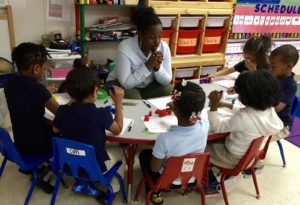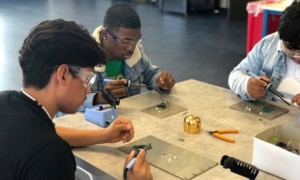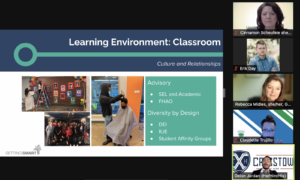Powering Lifelong Learning Relationships

We give lip service to the idea of lifelong learning but I don’t see an organization really executing against the idea. That’s about to change.
Earlier this month I spent a day with CEOs and Deans of six brand name medical schools considering strategies for boosting learning and cutting student debt burden. Dr. Bonnie Miller, Vanderbilt, made a provocative proposition, “I don’t want to enroll medical students, I want to enroll lifelong medical learners.”
Wow; that’s a big idea–it combines a thick alumni relationship, a professional learning network (PLN), just-in-time (JIT) learning resources, individual learning plans, and timely webinars targeted by predictive analytics. Imagine replacing 40 hours of lame conference sessions to collect continuing medical education (CME) units with a personalized sequence of timely learning experiences that supported current roles and professional goals.
The day after spending time with med schools, I spent a couple hours with the leadership team at an engineering school that described plans for a thick alumni relationship focused on professional learning and growth. For example, if a new generation of mobile apps and a technology like RFID had the potential to drive distribution efficiency; the school could send a blast to alumni in manufacturing and distribution pointing to JIT resources, planned webinars, and a new certificate program.
Another interesting opportunity for professional schools is connecting alumni mentors with undergrads. Imagine if every student had a graduation plan and a career goal and there was someone at home, someone at school, and a couple alum tracking progress toward those goals. It could be an efficient way for alumni to contribute and stay connected and give back.
At SXSW I described the concept of lifelong learning relationships (LLR) with Dennis Yang, president of Udemy, the leading anywhere anytime learning marketplace. He smiled and said, “Professional associations have the same need to stay connected and deliver value.” Any professional association–particularly in sectors that require continuing education including realtors, accountants, lawyers, and doctors–could play the role of lifelong learning partner. Udemy is all over the opportunity and next week will deliver a beta platform for associations.
Lifelong learning components. A good LLR would help you learn three things: How do I do my job better today? What do I need to learn for my next job? What do I need to know and be able to do for my 5 year career goal? It would go well beyond checking the continuing education certification box, but would certainly do that too. Imagine having a lifelong partner–perhaps a college or an association–help deliver answers to those questions.
This is a translational innovation opportunity–all the piece parts exist but haven’t been assembled and marketed coherently in the learning space. Components of emerging solutions may include:
- Big content library and delivery platform (e.g., Udemy, Lynda, Skillsoft, or Canvas.net)
- Knowledge maps for job clusters (what you need to know & be able to do; see job analysis or the math maps on Khan Academy)
- Individual learning plans and learning records (e.g., Bloomboard.com in K-12)
- Performance management and development planning tools for supervisors
- Advanced relationship manager (e.g., EverTrue for alum or TeleTech CRM)
- Social learning opportunities (e.g., Edmodo professional learning networks in K-12)
- Identity/security, payment, licensing/certification systems
- Branding – ability to change branding and skin of experience
The key, according to Yang, is learning “delivered in a rich medium and modular bite-size fashion – because that’s how people consume media today.”
Imagine having a lifelong learning partner that occasionally recognized the need for you to learn a new skill or tool before you realized it would become important; imagine engaging anywhere anytime learning that helps you meet your goals; imagine a portable partner tracking your development across multiple jobs and employers. It’s right around the corner.
Bloomboard, Edmodo, and Udemy are portfolio companies of Learn Capital where Tom is a partner.








0 Comments
Leave a Comment
Your email address will not be published. All fields are required.